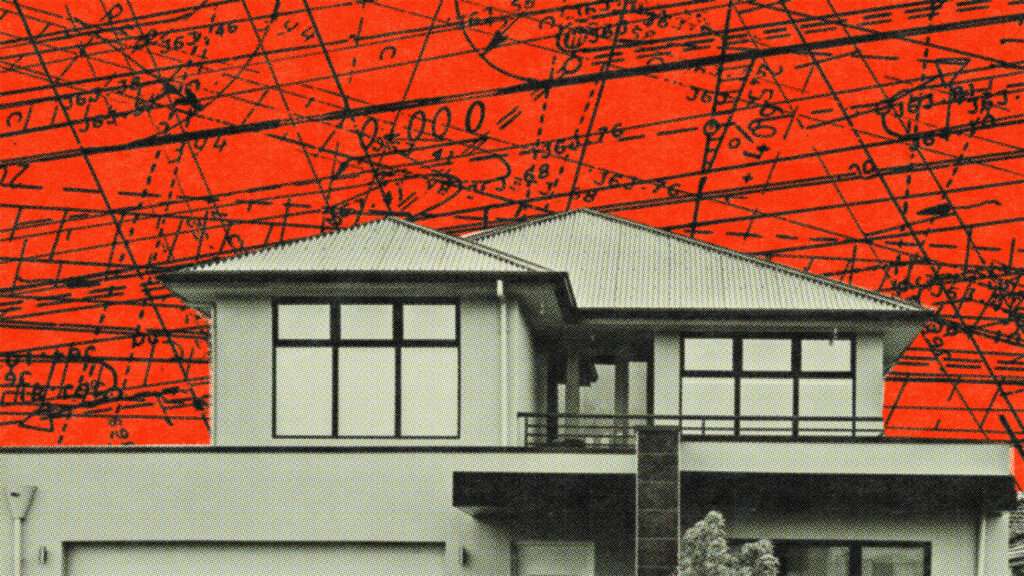Squatters’ Rights Laws Violate the Takings Clause
[ad_1]


In recent weeks there has been much media coverage about squatters’ rights laws, which can sometimes prevent property owners from removing trespassers that occupy their homes without their permission. Newsweek Describes some highly publicized recent case:
A recent string incidents in Georgia and New York have brought squatting to the forefront. This is the practice where someone occupies another’s property with their consent.
In Washington, an squatter named Sang Kim made headlines Kim refused to pay rent for the past two years, so Jaskaran Singh was unable to possess his $2 million property.
In March, a New York resident was arrested for unlawful eviction when she confronted a group of alleged “squatters” who had taken her parents’ house in Flushing Queens. ABC 7 reported. While the woman held the property’s deed, one man said he was on a lease for the house—which meant the property owner was barred from kicking him out [he, in fact, did not actually have a lease].
David Morris, an Atlanta landlord, told Fox 5 of the squatters who prevented him from building affordable housing in his nine-acre lot and whom he could not remove due to a moratorium on removals.
Morris told the outlet, that about 10 year ago he had agreed with four people to stay on the property without paying rent. But he later discovered that the number of campers had grown to around “30.” Morris told the outlet that he spent $10,000 cleaning up the garbage of the squatters, even though they were removed from the property.
John Stossel of Reason A video Focusing on the New York Case
Early reports can be misleading, as it often is when a problem attracts media coverage. Even a few successful cases of squatting could be problematic, as they could encourage imitation. Attention from the media could accelerate this process.
In an ideal world, state and local governments would make it easier for property owners and trespassers alike to remove squatters and subject them to civil and criminal sanctions. The laws that facilitate this violation of property right violate the Takings Clause in the Fifth Amendment. This clause requires “just compensation” when the government takes “private properties.”
You can also find out more about the following: Cedar Point Nursery v. Hassid (2021), the Supreme Court ruled that even temporary government-authorized physical occupations of private property are “per se” (automatic) takings. The Court ruled that a California law which required agricultural growers give union organizers three hours of access to their land every day for 120 days a year was invalid. At least some state laws on squatters rights are more egregious. They allow squatters the right to occupy the land for weeks or months at a time, completely excluding the owners. This is especially true of New York City lawIf they have occupied the property for 30 days or more, squatters with a claim to being tenants are entitled to strong protection against removal. Landowners who want to remove the squatters beyond that point will have to go through an eviction, which could take up two years.
Chief Justice John Roberts’s opinion for the Court Cedar Point It does, however, outline some exceptions from the rule that physical occupations required by the state qualify as takings. But squatters’ rights do not fall within any of those exceptions. For example, it’s obvious that the squatters conducting safety and health inspections aren’t government workers.
Squatters might argue that they are exercising what the Court has called “traditional common-law privileges to access private land.” The common law recognizes the right to claim private property through “adverse occupation.” Traditional common law precedent allows that only if squatters had exclusive possession of the land continuously for a period of time, usually five years or longer, and if the owner did not assert his rights during that period. The New York City Law and similar laws go far beyond that.
The Takings Clause might not be the best solution for this situation. It could take months to file and win a case of this nature. And if property owners do prevail, they generally get only the “fair market value” of the rights lost, which may not fully compensate all of their losses. This avenue can offer at least some valuable redress. The longer the squatters stay, the more compensation the government must pay. The fear of being held liable may encourage state and local governments, to repeal or tighten the laws that are causing the problem.
Legal issues aside, squatters’ rights laws harm the very people that they are meant to help: low income tenants. If property owner’s fear that squatters could occupy their property without their consent will make them less willing to rent their property in the first place, they might charge higher rents and screen potential tenants more closely (thus potentially excluding those who have low incomes, few or no references, etc.) or a combination of all these measures. They may also be motivated to impose expensive and elaborate security measures on land access, which will likely raise rents. All of this will reduce the availability of housing, and increase its cost.
I hope property owners, public interest law firms and other interested parties seriously consider challenging these laws. They aren’t a panacea. But they could be helpful.
[ad_2]


